Tokyu Group is committed to contributing to Local Community through its support for School Corporations and Foundations, as well as social activities in a variety of fields, including education, the environment, international exchange, and culture.

Tokyo City University Yokohama Campus
The Goto Educational Foundation is School Corporations established in June 1955 (Showa 30), with Goto Keita, who built the foundation for Tokyu Group, as its first chairman.
Since its establishment, the university has maintained the goal of "creating an attractive education system that will nurture talented individuals who have an international perspective and the ability to use information, who have a sound mind and a well-rounded education, and who can play an active role in the international community, thereby contributing to society at large."
Currently, the Tokyo City University Group comprises a group of schools from kindergarten to university, as well as Tokyu Driving School, with approximately 12,000 students*. Based on the educational philosophy of "utilizing the comprehensive strength of the academy to cultivate healthy minds and rich culture, and to develop human resources with an eye to the future," we will continue to further strengthen cooperation between schools and develop comprehensive education and research activities from early childhood education to higher education.
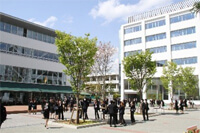
Asia University Campus
The university was established with the goal of contributing to the international community, particularly in Asia. With a diverse range of study abroad programs and a comprehensive extracurricular activity support system, the university respects the individuality of each student and fosters talented individuals who can contribute to the development of the international community, particularly in Asia, through education that meets the needs of society. The university also actively accepts international students from Asian countries such as China, Vietnam, and Thailand, and currently has a total of approximately 6,300 students, including approximately 300 international students.
In addition, Asia University gives back to society the resources and research results it possesses, and through volunteer and Social Contribution activities, it develops students' problem-solving skills and initiative, and also works in cooperation with local governments to create new urban and community development and communities.
The school is also known for its thriving sports scene, with many organizations boasting a long history and a proven track record, including the baseball club, which has produced many professional baseball players, and the track and field club, which has won the Hakone Ekiden. The baseball club in particular has won the Toho University Baseball Division 1 League 27 times, and in 2022 won the All-Japan University Baseball Championship, becoming Japan's number one team. As of 2022, 20 graduates are active as professional baseball players, including Fukuoka SoftBank Hawks infielder Nobuhiro Matsuda and pitcher Kyohei Tohama, and Yokohama DeNA Baystars pitcher Yasuaki Yamasaki.
The Tokyu Foundation was established on April 1, 2019 through the merger of the Tokyu Foundation for Better Environment, the Tokyu Foundation for Foreign Students, and the Gotoh Memorial Foundation.
In the Tama River and its basin, which runs through our business area, we are primarily involved in research and support for environmental cleanup and conservation, as well as cooperating with the government and carrying out public relations activities.
As of fiscal year 2021, the foundation has provided grants totaling 1.53 billion yen to 1,309 research projects. In 2009, it established the Tokyu Environmental Foundation social contribution Academic Award (now the Tokyu Foundation social contribution Environmental Academic Award) with the aim of contributing to the promotion of academic research in Japan, and has annually recognized researchers who have made particularly outstanding achievements in the field of the environment.
In addition, we have produced an environmental education supplementary book entitled "Welcome to the Tama River" which we distribute free of charge every year to elementary schools in the Tama River basin.
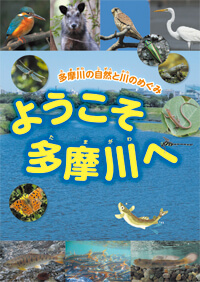
Environmental supplementary textbook for elementary schools
"Welcome to Tama River"
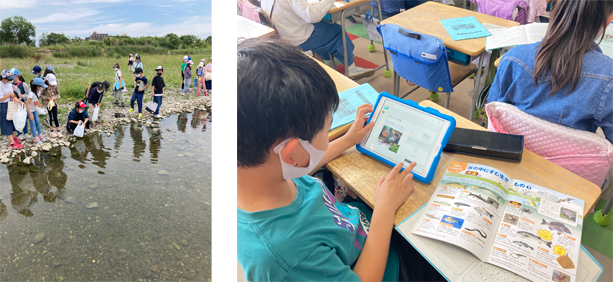
Environmental learning using "Welcome to the Tama River"
Based on the purpose advocated by the late Chairman Noboru Goto, "To foster human resources with an international perspective, promote international cultural exchange between Japan and other countries, and establish true friendly neighborly relations," the foundation provides scholarships and assistance to international students from Asia-Pacific countries who are studying or conducting research at graduate schools in Japan. In addition, the foundation actively organizes exchange activities such as field trips.
Over the 45 years since the program began, the program has accepted approximately 20 new international students each year, and by the end of FY2021 it has supported 947 international students from 28 countries, with a total scholarship amount of 2.82 billion yen. Approximately 300 students have earned doctoral degrees, and the graduates are active in their home countries, Japan, and other countries.

Orientation for new international students
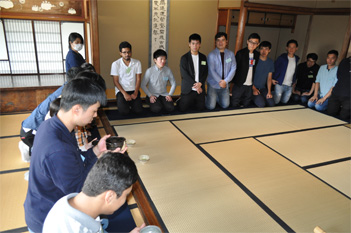
Tea ceremony experience at Goto Museum of Art
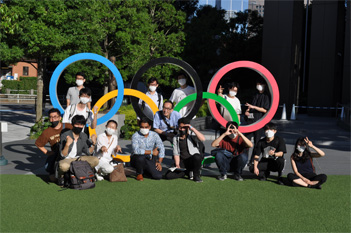
Visit to the National Stadium
In keeping with the wishes of the late Chairman, Noboru Goto, who wanted to "contribute to the realization of a truly enriched society by discovering and nurturing outstanding human resources," the Foundation contributes to the advancement and development of culture in Japan and around the world by honoring talented newcomers in the fields of culture and the arts, as well as those who are engaged in creative and outstanding cultural and artistic activities in the local community, and by supporting their study abroad.
The Gotoh Memorial Cultural Prize presents the New Artist Award to young visual artists and the New Artist Award to young opera singers and staff, as well as providing grants for opera performances. As of fiscal 2021, the Foundation has awarded and subsidized 77 artists in the opera division, 63 artists in the visual arts division, 118 training presentations, and 141 opera performances, totaling 1.35 billion yen. New Artist Award winners are also provided with support for overseas training expenses, as well as the opportunity to hold a solo exhibition or recital to present the results of their training. Due to the Foundation's respect for the independence of the award winners and its support for their activities, and the fact that many of the past winners have been active on the world stage and have attracted attention, the award has come to be known as a gateway to success for young artists.
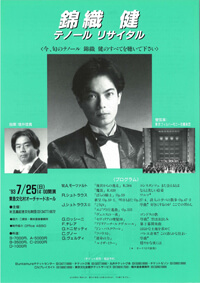
The 1st Gotoh Memorial Cultural Prize
Opera Newcomer Award: Ken Nishikori
Training Results Recital
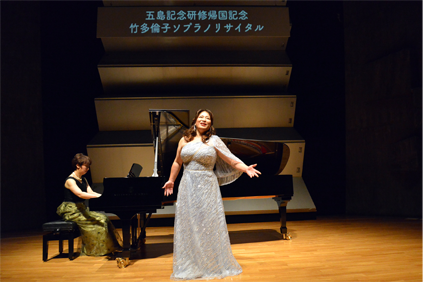
The 28th Gotoh Memorial Cultural Prize
Opera Newcomer Award: Takeda Michiko
Training Results Recital

The 28th Gotoh Memorial Cultural Prize
Art Newcomer Award: Natsuko Tanihara
Solo exhibition to present training results
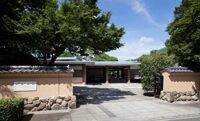
The Goto Museum
The Goto Museum was established in 1960 to commemorate the separation and reorganization of the then Tokyu Railway Company (now Tokyu Corporation) into the current Tokyu, Odakyu, Keio, Keikyu, and Tokyu Department Stores in 1949. In April 2012, the museum became a public interest incorporated foundation, and in 2020 it will celebrate the 60th anniversary of the opening of the Gotoh Museum.
The museum houses approximately 5,000 artworks, including five national treasures and 50 important cultural properties, across a wide range of genres, including the national treasures "The Tale of Genji Illustrated Scroll" and "The Diary of Murasaki Shikibu Illustrated Scroll," as well as paintings, calligraphy, tea ceremony utensils, ceramics, antique mirrors, swords, and stationery.
The library houses approximately 25,000 volumes of classical texts (manuscripts and printed books from before the Edo period), including three national treasures and 33 important cultural properties, such as the Records of the Grand Historian and the Enkeibon Monogatari of the Heike. The library also provides services such as making the books available for researchers to browse, and publishing journals and academic books.
While protecting these precious cultural assets and passing them on to future generations, the museum holds seven exhibitions a year (including one or two special exhibitions) to display and publicize its collection, and also works hard to promote the museum through gallery talks by curators and art classes.
In addition, the garden, which is approximately 16,000 square meters and full of lush nature, allows you to enjoy flowers and plants throughout the four seasons.